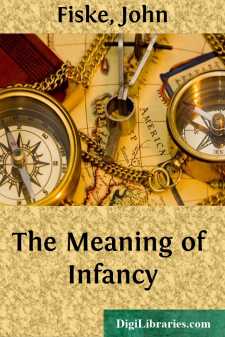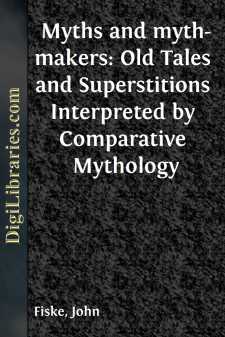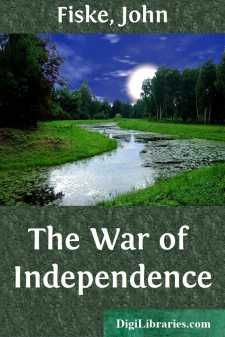Categories
- Antiques & Collectibles 13
- Architecture 36
- Art 48
- Bibles 22
- Biography & Autobiography 813
- Body, Mind & Spirit 142
- Business & Economics 28
- Children's Books 15
- Children's Fiction 12
- Computers 4
- Cooking 94
- Crafts & Hobbies 4
- Drama 346
- Education 46
- Family & Relationships 57
- Fiction 11828
- Games 19
- Gardening 17
- Health & Fitness 34
- History 1377
- House & Home 1
- Humor 147
- Juvenile Fiction 1873
- Juvenile Nonfiction 202
- Language Arts & Disciplines 88
- Law 16
- Literary Collections 686
- Literary Criticism 179
- Mathematics 13
- Medical 41
- Music 40
- Nature 179
- Non-Classifiable 1768
- Performing Arts 7
- Periodicals 1453
- Philosophy 64
- Photography 2
- Poetry 896
- Political Science 203
- Psychology 42
- Reference 154
- Religion 513
- Science 126
- Self-Help 84
- Social Science 81
- Sports & Recreation 34
- Study Aids 3
- Technology & Engineering 59
- Transportation 23
- Travel 463
- True Crime 29
The Meaning of Infancy
by: John Fiske
Description:
Excerpt
I
THE MEANING OF INFANCY
What is the Meaning of Infancy? What is the meaning of the fact that man is born into the world more helpless than any other creature, and needs for a much longer season than any other living thing the tender care and wise counsel of his elders? It is one of the most familiar of facts that man alone among animals, exhibits a capacity for progress. That man is widely different from other animals in the length of his adolescence and the utter helplessness of his babyhood, is an equally familiar fact. Now between these two commonplace facts is there any connection? Is it a mere accident that the creature which is distinguished as progressive should also be distinguished as coming slowly to maturity, or is there a reason lying deep down in the nature of things why this should be so? I think it can be shown, with very few words, that between these two facts there is a connection that is deeply in-wrought with the processes by which life has been evolved upon the earth. It can be shown that man's progressiveness and the length of his infancy are but two sides of one and the same fact; and in showing this, still more will appear. It will appear that it was the lengthening of infancy which ages ago gradually converted our forefathers from brute creatures into human creatures. It is babyhood that has made man what he is. The simple unaided operation of natural selection could never have resulted in the origination of the human race. Natural selection might have gone on forever improving the breed of the highest animal in many ways, but it could never unaided have started the process of civilization or have given to man those peculiar attributes in virtue of which it has been well said that the difference between him and the highest of apes immeasurably transcends in value the difference between an ape and a blade of grass. In order to bring about that wonderful event, the Creation of Man, natural selection had to call in the aid of other agencies, and the chief of these agencies was the gradual lengthening of babyhood.
Such is the point which I wish to illustrate in few words, and to indicate some of its bearings on the history of human progress. Let us first observe what it was then lengthened the infancy of the highest animal, for then we shall be the better able to understand the character of the prodigious effects which this infancy has wrought. A few familiar facts concerning the method in which men learn how to do things will help us here.
When we begin to learn to play the piano, we have to devote much time and thought to the adjustment and movement of our fingers and to the interpretation of the vast and complicated multitude of symbols which make up the printed page of music that stands before us. For a long time, therefore, our attempts are feeble and stammering and they require the full concentrated power of the mind. Yet a trained pianist will play a new piece of music at sight, and perhaps have so much attention to spare that he can talk with you at the same time....












